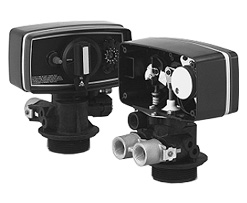Uncategorized
Fleck Valves: Mastering Fluid Control with Precision and Reliability
Fleck Valves: Mastering Fluid Control with Precision and Reliability
Fleck valves have earned a reputation as reliable and effective fluid control systems, providing accurate regulation and smooth operation in various applications. From water softeners to filtration units, Fleck valves play a pivotal role in ensuring the efficiency and effectiveness of fluid processing. In this post, we will delve into the fascinating world of Fleck valves, exploring their inner workings, understanding how they function, and providing a comprehensive troubleshooting guide to address common issues that may arise.
Understanding Fleck Valves:
Fleck valves, produced by Pentair Water Treatment, are renowned for their exceptional quality and reliability. They are non-electric, mechanical control valves designed to regulate water flow, pressure, and regeneration cycles in water treatment systems. Fleck offers a wide range of valve models, each tailored to specific applications, ensuring a perfect match for diverse fluid control needs.
How Fleck Valves Work:
A. Regeneration in Water Softeners: In water softening systems, Fleck valves facilitate the regeneration process. When the resin bed becomes saturated with hardness minerals (e.g., calcium and magnesium), the control valve initiates a backwash cycle. During backwashing, water flow is reversed to flush out accumulated minerals and other impurities from the resin bed.
B. Filtration and Backwash: In filtration systems, Fleck valves control the flow of water through various filter media, efficiently removing sediment, particles, and contaminants. When the filter media reach their capacity, the valve initiates a backwash cycle to cleanse the media and restore filtration efficiency.
Troubleshooting Guide for Fleck Valves: While Fleck valves are renowned for their durability and reliability, occasional issues may arise. Here’s a troubleshooting guide to address common problems:
A. Insufficient Water Flow:
- Check for blocked or clogged filters or resin beds. Clean or replace as needed.
- Verify that the water pressure is within the recommended range for the specific valve model.
- Inspect for any kinks or restrictions in the supply lines and correct them.
B. Valve Leakage:
- Check and replace any worn-out or damaged seals, o-rings, or gaskets.
- Ensure that the valve is properly seated and tightened to prevent leaks.
C. Valve Stalling or Not Advancing:
- Verify that the power supply (if applicable) is functioning correctly and providing sufficient voltage.
- Inspect for debris or mineral buildup in the valve’s internal components. Clean or flush the valve to remove any obstructions.
D. No Water Softening:
- Confirm that the brine tank contains enough salt for the regeneration process to occur.
- Inspect the brine injector and air check valve for blockages, cleaning or replacing them as necessary.
The Take Away: Fleck valves have rightfully earned their place as one of the preferred choices for fluid control in water treatment systems. Understanding their role in water softening, filtration, and backwash processes allows us to appreciate their significance in maintaining clean and soft water for various applications. With their robust design, precision control, Fleck valves continue to serve as indispensable components for ensuring the optimal performance and longevity of water treatment systems worldwide.
At Industrial Water Equipment, we take pride in offering an extensive selection of top-quality Fleck Valves. With a ready stock and convenient next day delivery, our valued customers can access these valves promptly. Our dedicated team of knowledgeable professionals is committed to providing exceptional service, and we are eager to discuss and fulfil all of your water treatment requirements.

